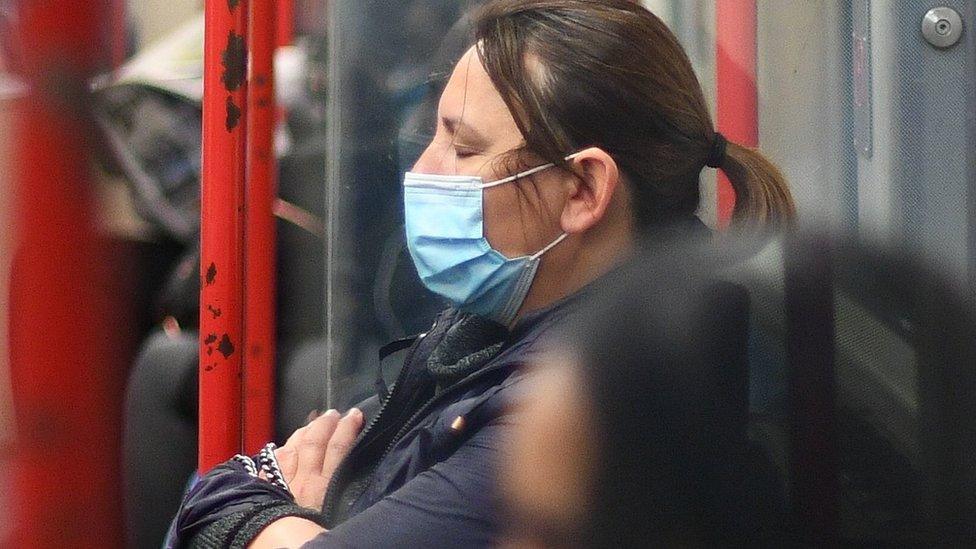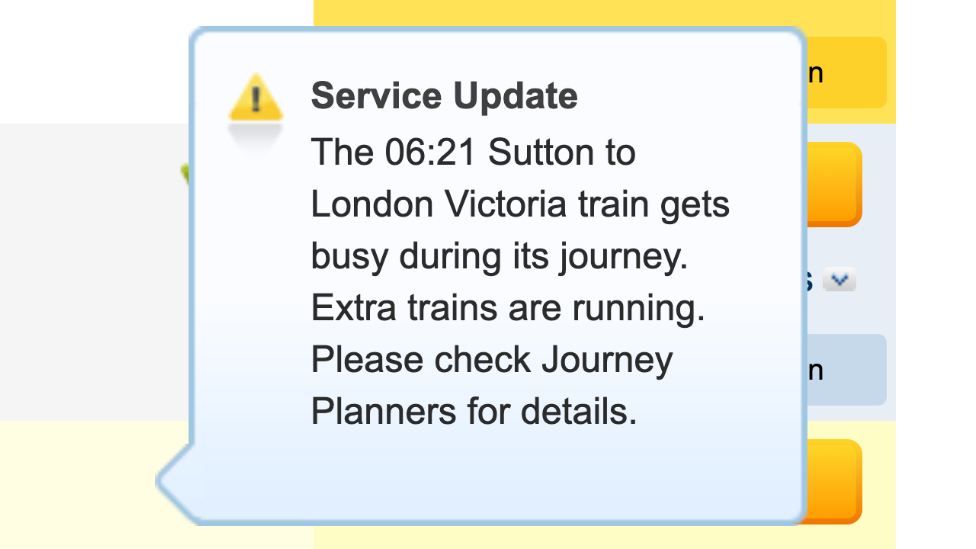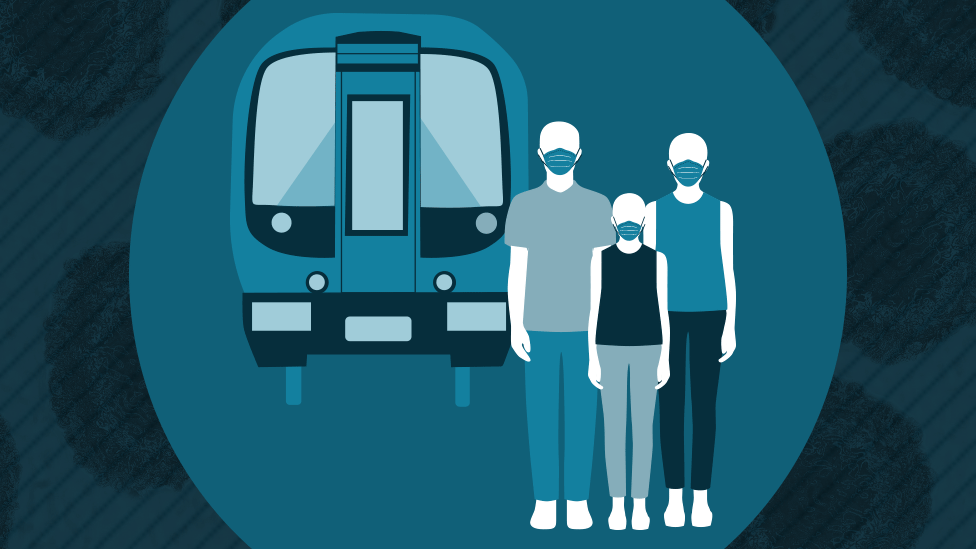Coronavirus: National Rail to offer 'busy station' alerts
- Published

National Rail says it will warn people if stations or trains are busy, to help them follow social distancing rules.
A warning triangle will appear on its app and website to warn customers buying tickets that a train service is expected to be busy.
It will also warn people who have signed up for travel alerts if a railway station is busy.
National Rail said it would use journey planning trends and live updates from railway staff to run the system.

Overcrowding has been an issue on some trains during the coronavirus pandemic.
The RMT transport union has threatened to halve services to protect staff and passengers.
National Rail's new system was developed by tech start-up Zipabout.
Passengers will be able to sign up for alerts on Facebook Messenger, external, and National Rail hopes to offer text-message and WhatsApp alerts in the future.
The system will also suggest alternative travel options to help people stagger their journeys.
National Rail has also revealed the busiest times for some of the UK's biggest stations:
Birmingham New Street - 06:00 to 06:30
Bristol Temple Meads - 08.30 to 09:00
Cardiff Central - 8:30 to 9:00
Edinburgh Waverly - 07:00 to 08:00
Glasgow Queen Street - 07:00 to 08:30
Leeds - 08:00 to 08:30
Liverpool Lime Street - 08:00 to 08:30
London Victoria - 07:00 to 07:30
London Waterloo - 06:30 to 07:30
Manchester Piccadilly - 07:00 to 7:30
The government said it welcomed National Rail's updates, but advised that anybody who could avoid rail travel should continue to do so.
“With capacity reduced to around one-fifth of that previously seen on our railways, it is important that people work from home if they can, stagger their travel times to avoid crowds, and use other forms of transport wherever possible," said Transport Secretary Grant Schapps.
He added: “Harnessing data and new technology will be crucial both to enable social distancing now, and to modernise the network for the future.”
According to the Office of Rail and Road (ORR), 51 million fewer journeys were made on the UK's railways in the first three months of the year compared with the same period in 2019.
Services were reduced substantially when the lockdown began in March, though have started to increase again after Prime Minister Boris Johnson said people who could not work from home could go to their place of work.
On Thursday, the government announced that passengers on public transport in England would be required to wear a face covering from 15 June.
Face coverings must be worn on buses, trams, trains, coaches, aircraft and ferries.
However, very young children, people with disabilities and those with breathing difficulties would be exempt, said Mr Schapps.
- Published21 May 2021
